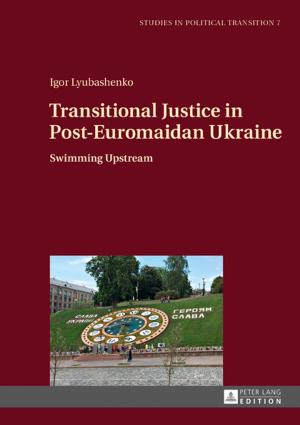Messianic Jews and their Holiday Practice
History, Analysis and Gentile Christian Interest
Nonfiction, Religion & Spirituality, Reference, Ritual & Practices, Christianity, Church, Church History, Judaism| Author: | Evert W. Van de Poll | ISBN: | 9783653970128 |
| Publisher: | Peter Lang | Publication: | January 6, 2015 |
| Imprint: | Peter Lang GmbH, Internationaler Verlag der Wissenschaften | Language: | English |
| Author: | Evert W. Van de Poll |
| ISBN: | 9783653970128 |
| Publisher: | Peter Lang |
| Publication: | January 6, 2015 |
| Imprint: | Peter Lang GmbH, Internationaler Verlag der Wissenschaften |
| Language: | English |
Celebrating Biblical and Jewish holidays is most characteristic of the Messianic Jewish movement, and it arouses much interest among Gentile Christians. This practice arose in the struggle of Hebrew Christians in the 19th century against «Christian assimilation». From the 1970s onwards, a new generation of Messianic Jews identified strongly with their people’s socio-cultural heritage, including the practice of Sabbath, Pesach and other Jewish holidays. A thorough analysis of calendars, reinterpretations, observances and motives shows that this is a novel, Christian-Judaic practice. Why and how do Gentile Christians adopt it? To return to «Jewish roots»? What does this term stand for? As the author takes up these questions, he shows that this is rather a contextualisation of the Gospel.
Celebrating Biblical and Jewish holidays is most characteristic of the Messianic Jewish movement, and it arouses much interest among Gentile Christians. This practice arose in the struggle of Hebrew Christians in the 19th century against «Christian assimilation». From the 1970s onwards, a new generation of Messianic Jews identified strongly with their people’s socio-cultural heritage, including the practice of Sabbath, Pesach and other Jewish holidays. A thorough analysis of calendars, reinterpretations, observances and motives shows that this is a novel, Christian-Judaic practice. Why and how do Gentile Christians adopt it? To return to «Jewish roots»? What does this term stand for? As the author takes up these questions, he shows that this is rather a contextualisation of the Gospel.















